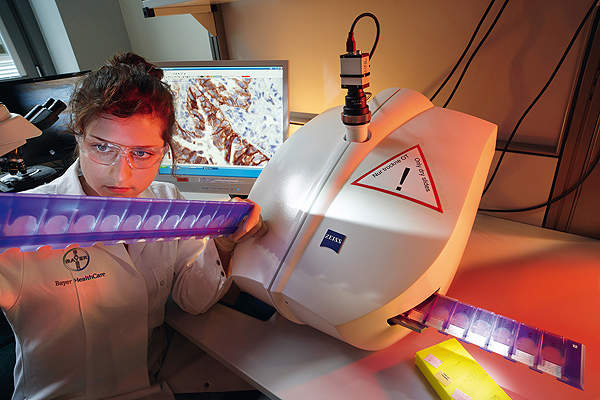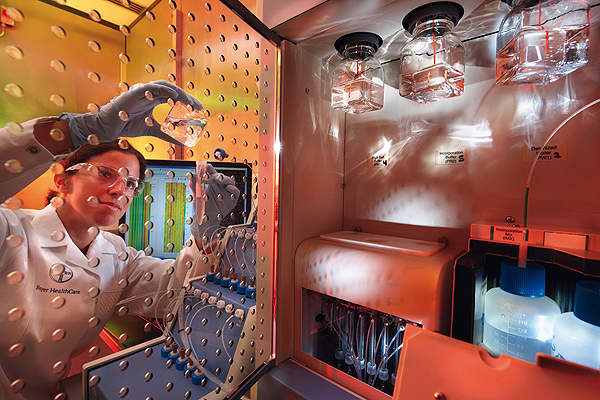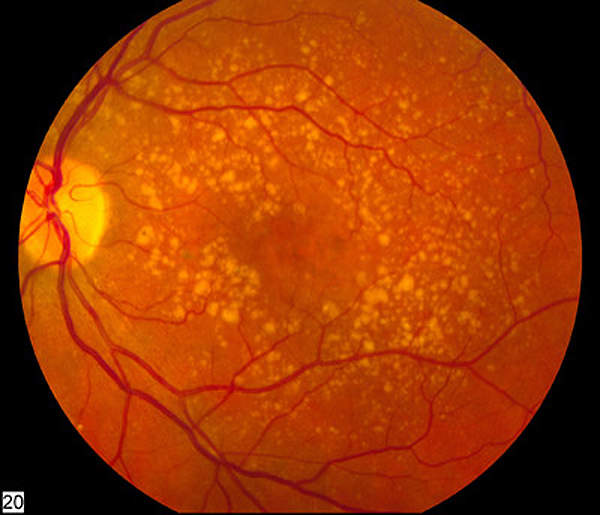Eylea (aflibercept), a recombinant fusion protein, is approved for the treatment of patients with wet age-related macular degeneration (AMD), central retinal vein occlusion (CRVO), diabetic macular oedema and diabetic retinopathy, jointly developed by Regeneron Pharmaceuticals and Bayer HealthCare.
Eylea is the only approved anti-VEGF drug that treats four retinal diseases with single-dose prefilled injection. Eylea was first approved by the US Food and Drug Administration (FDA) for the treatment of wet AMD in November 2011. Subsequently, it was approved in Canada, Australia, Japan, Switzerland and Europe.
Regeneron submitted a supplemental biologics license application (sBLA) to the FDA for the use of Eylea in central retinal vein occlusion (CRVO). The drug was approved for this indication by the FDA in September 2012.
Bayer submitted a marketing authorisation application for CRVO in Europe in December 2012. The drug was approved by the European Commission for the treatment of visual impairment due to macular oedema secondary to CRVO in August 2013.
The company also received a marketing authorisation application for Eylea for the treatment of patients with diabetic macular oedema in Europe in August 2014. In Japan, the drug was approved for myopic choroidal neovascularisation in September 2014 and for retinal vein occlusion in June 2015.
Eylea was approved in China for the treatment of vision loss in patients with diabetic macular oedema in February 2017. The FDA approved Eylea for the treatment of diabetic retinopathy in May 2019.
Wet age-related macular degeneration and diabetic retinopathy
AMD is a frequently observed cause of blindness in older adults, while diabetic retinopathy is a diabetic eye condition commonly observed in working-aged adults in the US. The macula is a sensitive tissue present in the centre of the retina. It helps in viewing finer details.
AMD occurs due to swelling caused by leaking of abnormal blood vessels growing under the retina, which leads to dysfunction of the retina creating blind spots in central vision. Diabetic retinopathy damages the retina in patients with diabetes mellitus.
AMD is the leading cause of blindness for people aged above 65 years in Europe and the US. It is estimated that approximately 15 million people in the US are affected by the disease. Around 200,000 cases of Wet AMD are diagnosed in North America every year. Roughly eight million people live with diabetic retinopathy worldwide.
Eylea mechanism of action
Vascular endothelial growth factor-A (VEGF-A) and placental growth factor (PIGF) proteins promote the growth of abnormal blood vessels under retina damaging the macula.
Eylea is an intravenous injection that contains recombinant fusion protein. The soluble decoy receptor present in the drug works by binding all forms of VEGF-A and PIGF proteins.
The drug inhibits the activation of the cognate VEGF receptors.
Clinical trials of Regeneron and Bayer HealthCare’s recombinant fusion protein
FDA approval of Eylea for wet-AMD comes from results of two randomised, multi-centre, double-masked, active-controlled phase III clinical studies, View 1 and View 2, which saw a total of 2412 patients treated.
The VIEW 1 study, which enrolled 1,217 patients across the US and Canada, was conducted by Regeneron, while VIEW 2, which enrolled 1,240 patients in Europe, Japan, Latin America and Asia-Pacific, was led by Bayer.
Patients were administered with three different doses of Eylea regimens, ranging between 0.5mg and 2mg. The primary endpoint of both the studies was the number of patients who retained sight at week 52 compared to baseline.
In both the studies, 95% of patients receiving a 2mg dose of Eylea every four weeks showed maintenance of visual acuity.
Approval for the drug in Canada and Australia was also based on the results of the Phase III VIEW 1 and VIEW 2 clinical trials. Eylea, when used every other month after the initial three monthly injections, was not found inferior to Genentech’s wet AMD drug Lucentis dosed for every four weeks.
Common adverse reactions found in Eylea-administered patients included cataracts, vitreous floaters, eye pain, vitreous detachment, increased intraocular pressure and haemorrhage.
The FDA’s approval of the drug for diabetic retinopathy comes from the positive results of a randomised, multi-centre, controlled Phase III clinical study Panoroma.
The study demonstrated that Eylea reduced the risk of developing proliferative diabetic eye disease in patients by 85% to 88% in one year when administered in every 16 weeks or eight weeks, respectively. Approximately 80% of patients receiving Eylea every eight weeks showed significant improvement in diabetic retinopathy.
Marketing commentary for wet AMD drugs and Eylea (aflibercept)
Related project
Jetrea (ocriplasmin) for Treatment of Symptomatic Vitreomacular Adhesion, United States of America
Jetrea (ocriplasmin) is a pharmacological agent developed by ThromboGenics, for the treatment of symptomatic vitreomacular adhesion (VMA). Jetrea was approved by the US Food and Drug Administration (FDA) for treating symptomatic VMA in October 2012.
Regeneron holds the exclusive rights for marketing Eylea in the US, whereas Bayer markets the drug outside the US and both the companies share profits equally. Bayer launched Eylea in Australia and other countries in 2013.
Other drugs approved by the FDA for the treatment of wet AMD include Visudyne, Macugen and Lucentis, which were approved in 2000, 2004 and 2006 respectively.





